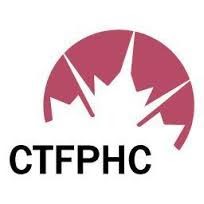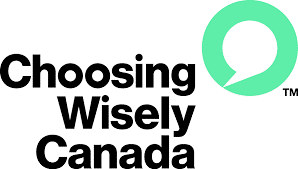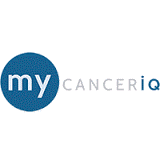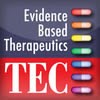
“We are drowning in information but starved for knowledge.” John Naibitt
“We can just Google it!” writes Dr. Jalees Rehman of the University of Illinois at Chicago in Scientific America on August 2, 2012. “Identifying the websites with the most accurate and relevant information are critical skills that are necessary for navigating our way in the digital information jungle, but unfortunately, these skills are rarely taught. In most cases, inaccurate or irrelevant information on the internet merely delays us for a few minutes until we do find the answer to what we are looking for. However, when it comes to medical information, inaccurate or irrelevant information could potentially have a major detrimental impact on our well-being.
I invite you visit the sites below (and at our newest website feature: Patient Resources –www.santekildare.ca/services/patient-resources/) which provide diverse, relevant and reliable medical information. Some help calculate risk for cancer, osteoporosis and heart disease, while others prepare patients for appointments, review medications, discuss controversies in screening and limitations in treatments, and provide patients with easy-to-understand information about prevention and management of common illnesses.
With apologies to J.K.Rowling, “Understanding is the first step to healing.”

CTFPHC
The Canadian Task Force on Preventive Health Care (CTFPHC) has been established by the Public Health Agency of Canada (PHAC) to develop clinical practice guidelines that support primary care providers in delivering preventive health care.
Patient Engagement in Guideline Development: The CTFPHC involves members of the public in its guideline development process. Specifically, the CTFPHC uses feedback from the public to guide the search for evidence on the guideline topic and to develop knowledge translation tools to accompany the guidelines
http://canadiantaskforce.ca/tools-resources/videos/
http://canadiantaskforce.ca/general-public/general-information/

Choosing Wisely Canada
Choosing Wisely Canada is a campaign to help physicians and patients engage in conversations about unnecessary tests, treatments and procedures, and to help physicians and patients make smart and effective choices to ensure high-quality care. Unnecessary tests, treatments and procedures do not add value to care. In fact, they take away from care by potentially exposing patients to harm, leading to more testing to investigate false positives and contributing to stress for patients. And of course unnecessary tests, treatments and procedures put increased strain on the resources of our health care system.

My CancerIQ
Designed by Cancer Care Ontario (CCO), My CancerIQ is a website that helps you understand your risk for cancer and what you can do to help lower that risk.
A series of risk assessments estimate your risk of cancer compared with other Ontarians of the same sex age 40 and over. At the end of each assessment you’ll receive a personalized risk assessment and action plan with tips and resources based on your personal risk factors.
Lung Foundation Australia
Lung Foundation Australia Primary Care Respiratory Toolkit supports the promotion of lung health as well as the early diagnosis and best practice management of lung disease. Evidence shows that Chronic Obstructive Pulmonary Disease is under-recognised, under-diagnosed and under-managed. The Primary Care Respiratory Toolkit has been developed to redress this.
The Lung Age Estimator has been developed to support clinicians to motivate current smokers to quit, by providing a graphic illustration of estimated lung age.
http://doctorwidget.com/alf/ignition/index.php/alf_pcrt#

Medstopper
Medstopper is a tool to help clinicians and patients make decisions about reducing or stopping medications. By entering the list of medications a patient is receiving, Medstopper sequences the drugs from “more likely to stop” to “less likely to stop”, based on three key criteria: the potential of the drug to improve symptoms, its potential to reduce the risk of future illness and its likelihood of causing harm. Suggestions for how to taper the medication are also provided.

Canadian Patient Safety Institute
Established by Health Canada in 2003, the Canadian Patient Safety Institute (CPSI) works with governments, health organizations, leaders, and healthcare providers to inspire extraordinary improvement in patient safety and quality.
Shift to Safety offers tips and tools for talking to you healthcare team. Empower yourself with information to help you ask good questions, connect with the right people, and learn as much as you can to keep you or a family member safe while receiving healthcare.
http://www.patientsafetyinstitute.ca/en/toolsresources/questions-are-the-answer/pages/default.aspx

Calorie Counter
How many calories should you eat? One-size-fits all recommendation do not work – each plan needs to be customized to each individual. Science tells us that 1 pound of fat is equal to 3500 calories so, in theory, a daily calorie deficit of 500 should result in 1 pound per week fat loss. Regrettably, in reality things don’t quite work that efficiently.
http://www.bmimedical.ca/calculator.aspx

CVD Calculator
This Cardiovascular disease (CVD) calculator from the Therapeutics Education Collaboration uses both Framingham and the new ASCVD formulas. It displays benefit estimates for all treatments – diet, lifestyle and medications. The calculator promotes itself as the BEST tool for calculating cardiovascular risk.
http://chd.bestsciencemedicine.com/calc2.html

Journal of the American Medical Association
Explore the latest patient information from The JAMA Network, including easy-to-understand information about prevention and management of common illnesses.
http://jamanetwork.com/collections/6258/for-patients
Calcium Calculator


Fracture Risk Assessment

